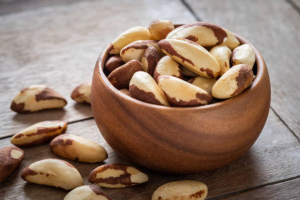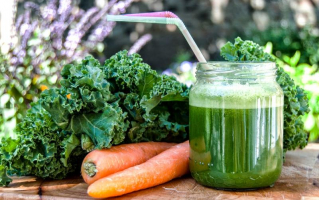Top 10 Health Benefits of Soy Nuts
A crispy snack known as soy nuts is created by soaking ripe soybeans in water, draining the water, then baking or roasting the soybeans. Although they have a ... read more...nuttier texture and may even be mashed into nut butter, they taste compared to other soy products. Soy nuts may aid in weight reduction, improve heart and bone health, and have other advantages since they are high in fiber, plant protein, isoflavones, and other minerals. Here are the best health benefits of soy nuts.
-
Numerous studies indicate that eating a lot of soy-based foods may help boost HDL (the good cholesterol) and reduce LDL (the bad cholesterol). One recent assessment, for instance, found that daily consumption of 25 grams of soy protein on average may help lower total and LDL (bad) cholesterol levels by around 3%. The scientists do think that when consumers consume soy protein rather than animal protein, reductions may really be greater in practice. More study is needed to support this, though. According to another study, soy-rich diets may help lower levels of total and LDL (bad) cholesterol by 2–3 percent. Additionally, they might increase HDL (good) cholesterol by 3% and lower triglyceride levels by around 4%.
At the moment, it appears that those who already have heart disease risk factors, including high cholesterol, obesity, or type 2 diabetes, are among those who benefit most from soy-rich diets. Additionally, compared to processed soy goods and supplements, less processed soy foods like soybeans, tofu, tempeh, and edamame tend to lower cholesterol levels more effectively.
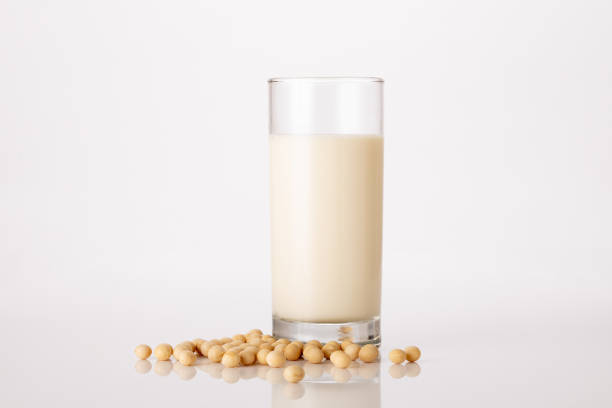
May help lower cholesterol levels 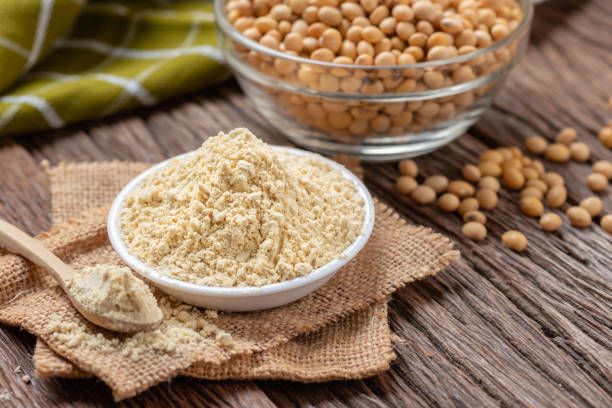
May help lower cholesterol levels -
Consuming soy nuts may help reduce other heart disease risk factors and lower cholesterol levels. Alpha-linolenic acid (ALA) in soy, fiber, and protein all likely play a part, though the precise process is yet unclear. Isoflavones, which are found in soy, work as antioxidants in your body and resemble estrogen.
Eating soy products substantially reduced LDL (bad) cholesterol levels while raising HDL (good) cholesterol levels, especially in people with high cholesterol levels, according to a study of 35 research. According to another research, soy nuts have a greater impact on cholesterol levels than other soy products. In addition, an 8-week trial involving 60 women found that soy nuts, which contain 25 grams of protein per serving, reduced systolic and diastolic blood pressure in people with high blood pressure by 9.9% and 6.8%, respectively, compared to a diet devoid of soy protein.
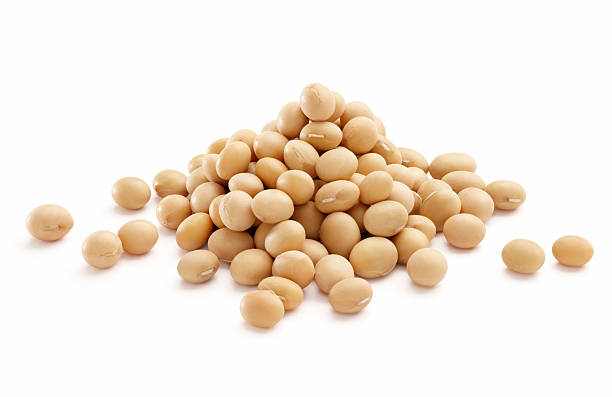
May help protect heart health 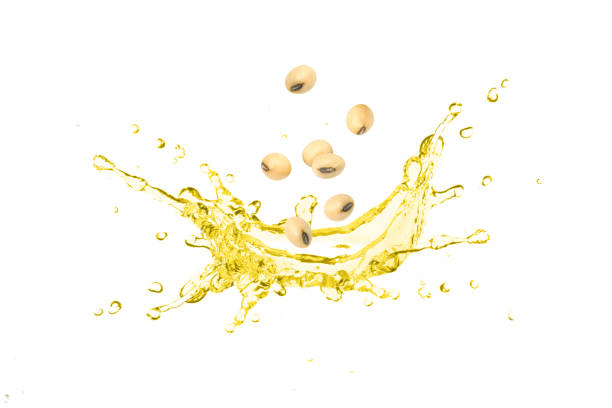
May help protect heart health -
Arginine is a common amino acid found in soybeans and meals produced from them, and it is thought to help control blood pressure. Isoflavones, another substance thought to have blood pressure-lowering properties, are also abundant in soybeans. In one study, it was shown that some, but not all, women's diastolic blood pressure (the bottom number of a blood pressure reading) decreased by around 8% when they had 1/2 cup (43 grams) of soy nuts daily.
Other studies show that persons with high blood pressure can lower their blood pressure by 3-6 mm Hg with daily soy isoflavone doses of 65–153 mg. It's unclear, though, if those with normal or high blood pressure can still benefit from these modest blood pressure-lowering effects. Both may benefit, according to some research, while others claim that only those with high blood pressure would notice this impact. Clearly, additional study is required, but for the time being, it seems that soy has very little, if any, influence on blood pressure.
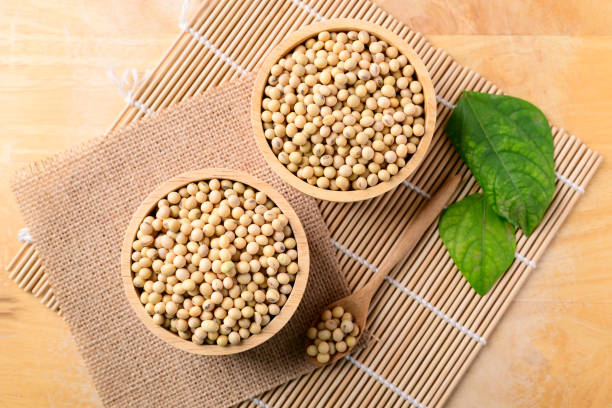
May lower blood pressure 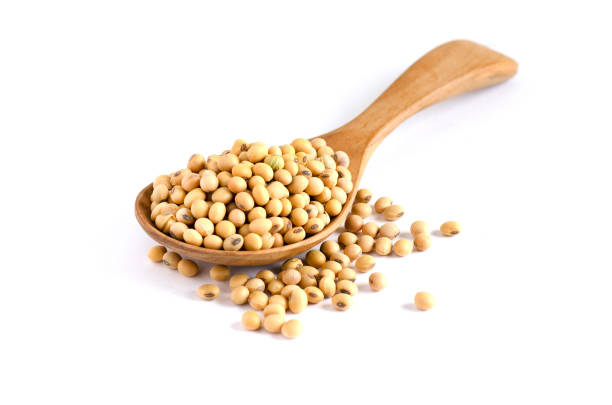
May lower blood pressure -
Soy isoflavones may help marginally lower blood sugar and insulin levels in menopausal women, according to one analysis that included 17 randomized control studies, the gold standard in research. Additionally, soy isoflavones may lessen insulin resistance, a disease in which cells no longer react to insulin as they should. Type 2 diabetes can eventually develop as a result of insulin resistance and excessive blood sugar levels. Supplements containing soy protein may also assist persons with type 2 diabetes or metabolic syndrome in somewhat reducing their insulin and blood sugar levels, according to some data.
The term "metabolic syndrome" describes a group of disorders that collectively tend to raise a person's risk of type 2 diabetes, heart disease, and stroke. These diseases include high blood sugar, high cholesterol, blood pressure, and belly fat. These conclusions are not universal, and several studies have been unable to establish a direct correlation between soy consumption and blood sugar regulation in both healthy individuals and those with type 2 diabetes.

May lower blood sugar 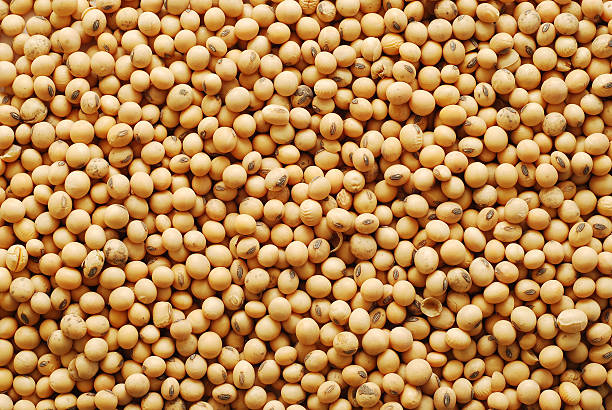
May lower blood sugar -
Because soy nuts contain a lot of protein, they could help with weight loss. Increasing protein intake may increase metabolism and satisfaction, aiding in weight reduction. Although there is conflicting evidence, soy protein may have extra advantages for fat metabolism and weight reduction when combined with fiber and isoflavones. In an 8-week trial of 30 obese people, those who consumed soy protein had considerably higher decreases in body fat than those who consumed a diet low in calories but high in animal protein.
A 12-week trial involving 39 obese or overweight people found that daily consumption of soy-fiber-containing biscuits for breakfast significantly reduced body weight compared to biscuits without dietary fiber.
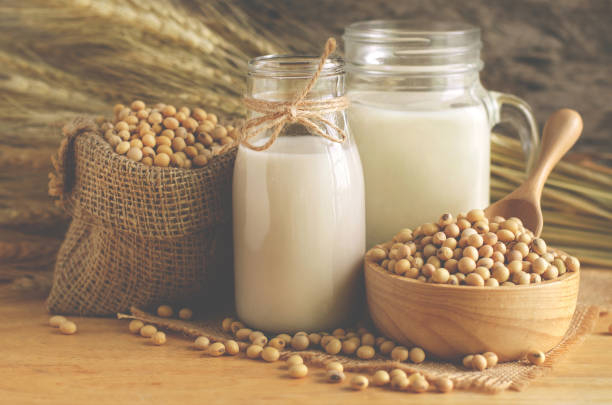
May aid weight loss 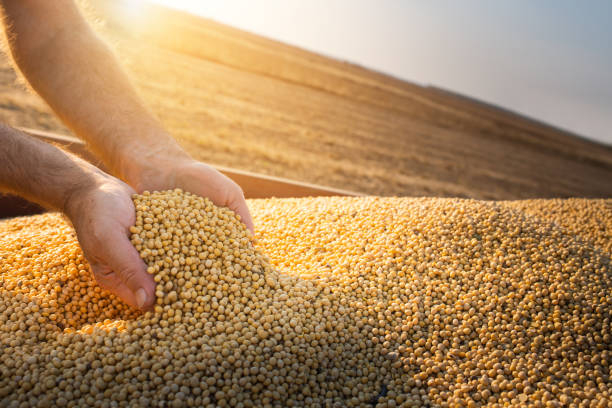
May aid weight loss -
The isoflavones in soy nuts may strengthen bones and prevent osteoporosis, a condition marked by brittle bones and a higher risk of fractures. For instance, it has been demonstrated that genistein and other isoflavones boost postmenopausal women's bone mineral density. This is probably because they benefit indicators in your body that regulate bone development.
In comparison to a placebo, taking 90 mg of soy isoflavones daily for at least six months significantly enhanced bone mineral density in menopausal women, according to an analysis of ten trials. Remember that most research employs isoflavone supplements rather than soy meals, thus even though some don't link isoflavone intake with stronger bones. According to several studies, isoflavone levels are raised higher by soy meals than by supplementation.
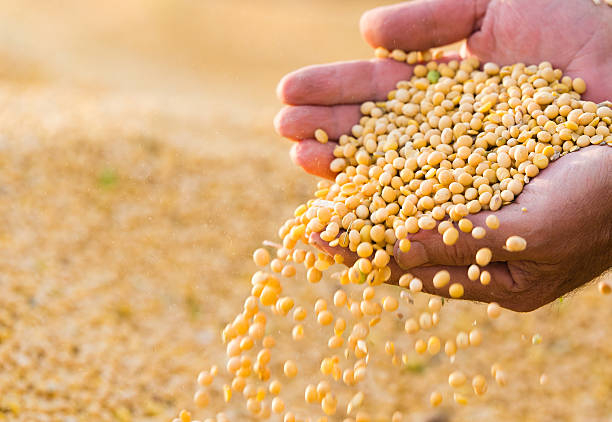
May promote bone health 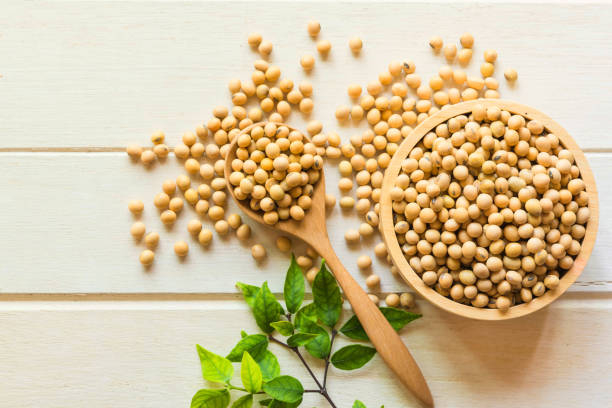
May promote bone health -
Low estrogen levels during menopause cause hot flashes, mood changes, and other symptoms. Isoflavones found in soy resemble estrogen, therefore they could aid with symptoms. A 1/2 cup (86 grams) of soy nuts per day resulted in a 40% reduction in hot flashes, as compared to a comparable diet without soy nuts, in an 8-week trial of 60 older women. An analysis of 17 research on menopausal women found that, when compared to a placebo, ingesting soy isoflavones for 6 weeks to 12 months decreased hot flash severity by over 20%.
Other research, however, presents conflicting findings. There is minimal proof that soy reduces the symptoms of menopause, according to a study of 10 trials. According to research, the effects of soy on estrogen levels and menopausal symptoms vary depending on the specific isoflavone metabolism of each woman.
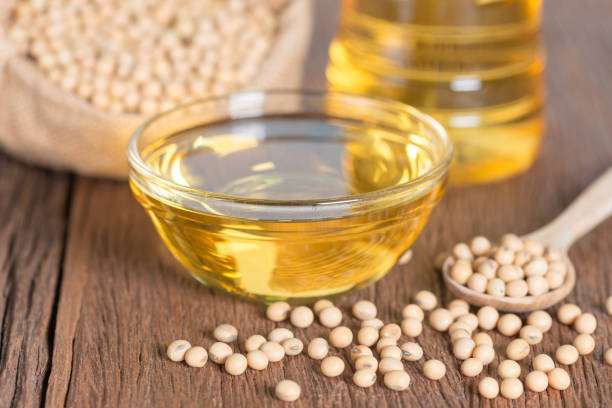
May help alleviate menopause symptoms 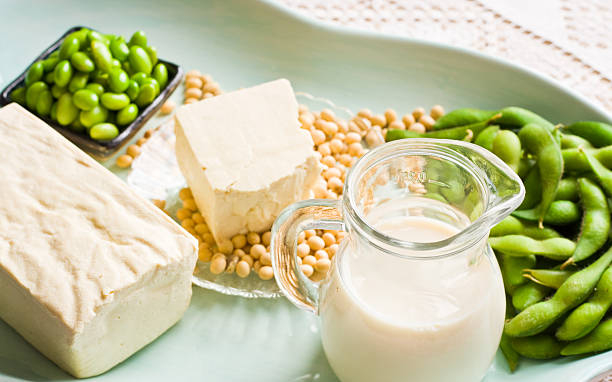
May help alleviate menopause symptoms -
According to a recent observational study, eating meals containing soy may lower your chance of developing breast and prostate cancer. However, the impact of soy on the risk of cancer is hotly contested. Studies on animals have shown contradictory findings relating to soy isoflavones and tumor development, particularly in breast cancer. Human studies don't support the idea that soy may raise your risk of breast cancer, despite the estrogen-like actions of isoflavones. In women from Asian nations, soy consumption was connected to a lower incidence of breast cancer, according to a study of 35 research, but it was not linked to breast cancer in women from Western countries.
Additionally, research links soy consumption to a roughly 30% decreased risk of prostate cancer. Isoflavones, which function as antioxidants, and lunaisin, which induces cancer cell death in test-tube and animal tests, are thought to be responsible for soy's potential anticancer properties.
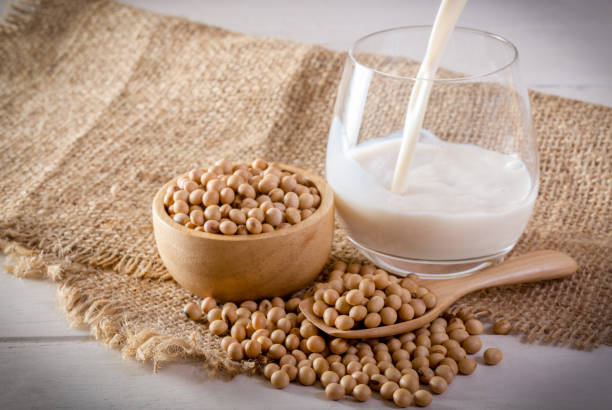
May protect against certain cancers 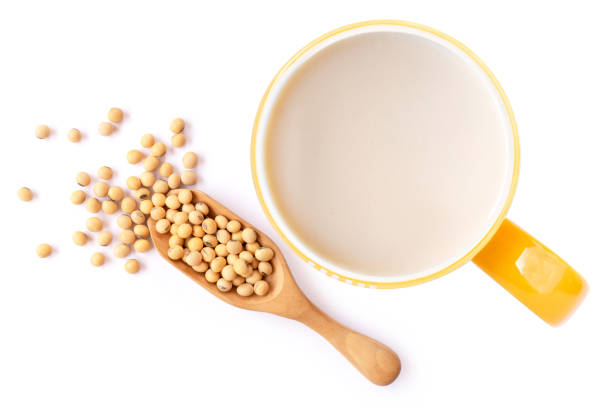
May protect against certain cancers -
According to several studies, women who consume diets high in soy may have better fertility. In one research, women who consumed more soy isoflavones were 1.3–1.8 times more likely to become pregnant after receiving fertility treatments than those who consumed fewer soy isoflavones. Men might not benefit from increased fertility in the same ways, though. In a different research, it was shown that soy meals may provide some defense against the effects of bisphenol A (BPA), a substance included in certain plastics and thought to lower fertility. Nevertheless, not all studies have shown improvements in fertility.
For instance, one review indicated that consuming 100 mg of soy isoflavones daily may lower levels of reproductive hormones and ovarian function, two crucial components of fertility. Furthermore, according to another study, women who consume more than 40 mg of soy isoflavone per day maybe 13% more likely to have reproductive problems than those who consume less than 10 mg. But according to the majority of research conducted to date, eating a diversified diet that includes 10–25 mg of soy isoflavones per day—and maybe even up to 50 mg—does not appear to have any negative effects on ovulation or fertility.
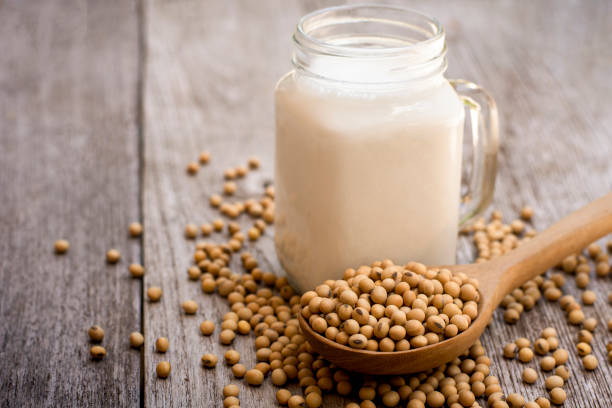
May improve fertility 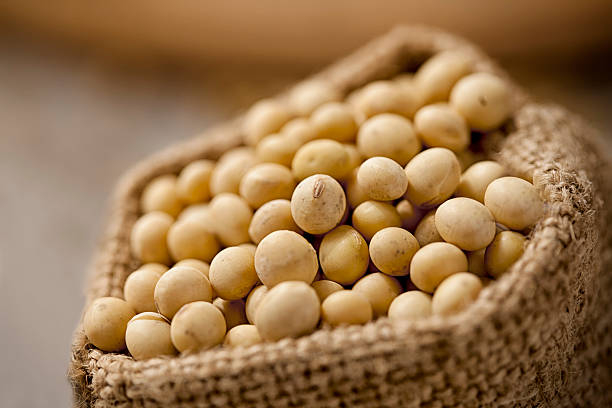
May improve fertility -
A decreased risk of developing several malignancies has also been associated with soy-rich diets. One recent assessment of 12 research, for instance, found that women who consumed more soy before getting a cancer diagnosis may have a 16 percent reduced probability of dying from the disease than those who consumed the least. High soy consumption before and after diagnosis may also cut postmenopausal women's chance of developing breast cancer again by up to 28%. The results of this study, however, imply that premenopausal women could not reap the same advantages. On the other hand, another research claims that pre-postmenopausal women who consume diets high in soy may benefit from a 27 percent reduced risk of cancer.
But only Asian women were shown to benefit from soy's defensive properties, whereas Western women seemed to gain little. These studies suggest that certain women who consume diets high in soy may experience a reduced risk of breast cancer. However, further research is required to pinpoint which females would profit the most.
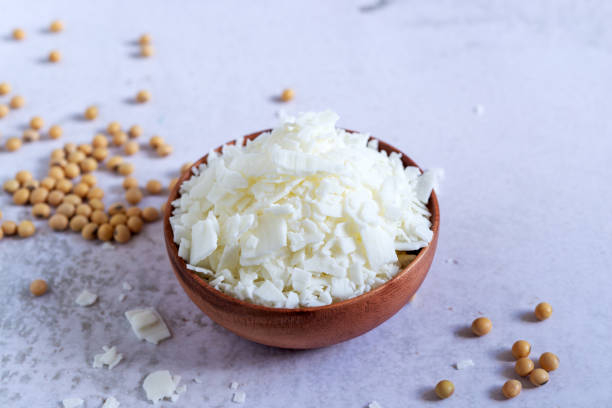
May reduce the risk of breast cancer 
May reduce the risk of breast cancer












